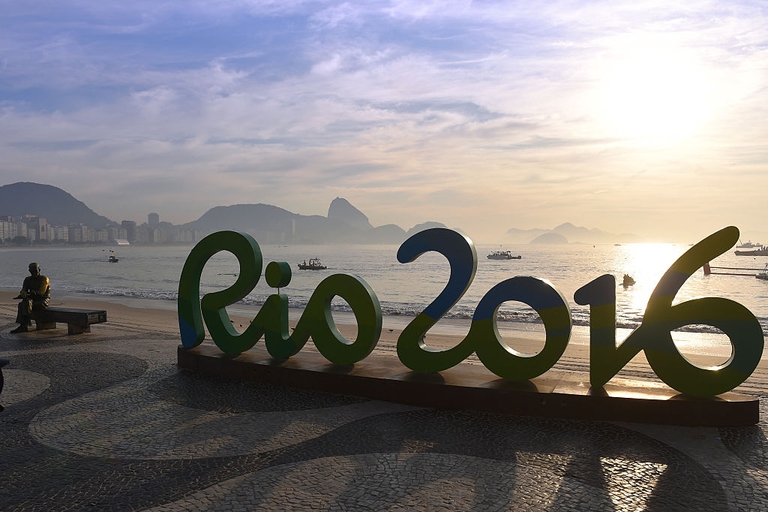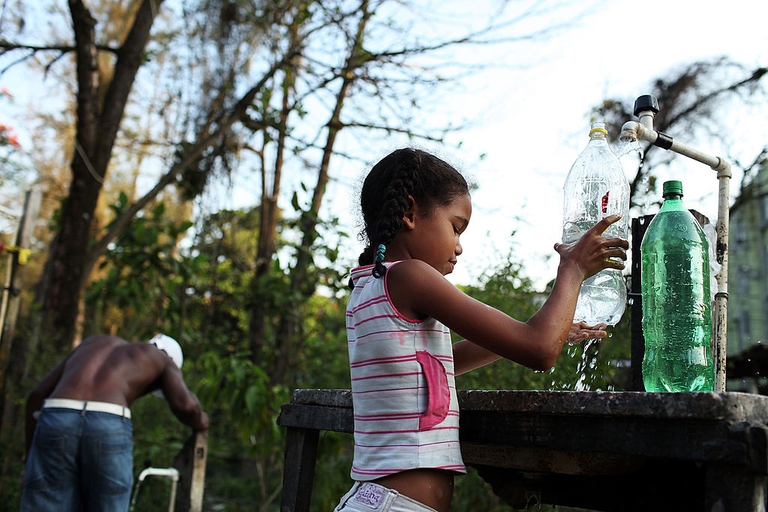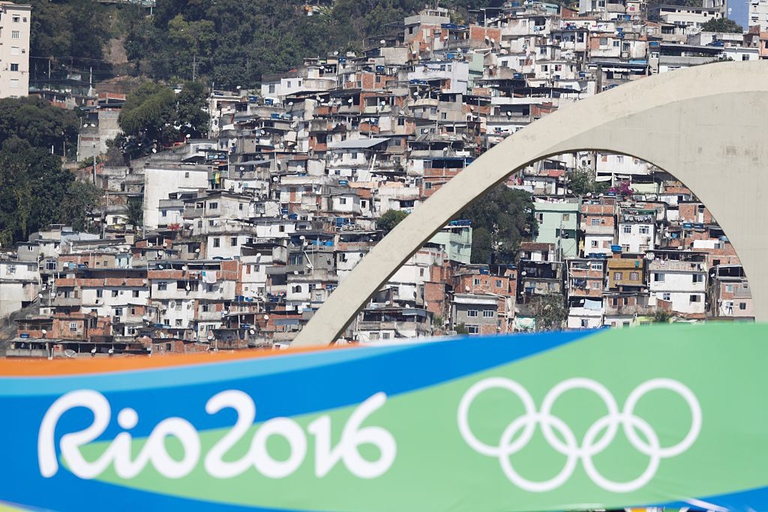
South African court dismisses a major lawsuit by 140,000 Zambian women and children against Anglo American for Kabwe lead poisoning. A setback for affected communities enduring the lasting impact of lead contamination.
Rio’s water network has been privatised to fund the Olympic Games. According to many, this is a political move.
Like many other editions, the Olympic Games of Rio de Janeiro have been surrounded by controversy. Many people joined the Brazilian social movements to denounce water pollution and lack of security. However, there’s one flaw whose importance has been understated: the privatisation of public water in Rio.
Brazil’s “interim” government led by Michel Temer, who succeeded former President Dilma Rousseff following her impeachment, signed an emergency loan to the State of Rio de Janeiro ahead of the 2016 Olympics. He signed it to finance infrastructure for the event, in particular for a subway line connecting the sports venues. The bailout was made possible by selling CEDAE, Rio’s state water company.
Parts of the network had already been privatised in 2012, with a 30-year concession contract with the company Foz Águas 5, which had a partnership with Odebrecht. Odebrecht is a Brazilian engineering giant: infrastructure, energy and local development are just some of the fields in which it operates. Just to mention an example of privatisation, the famous Maracanã Stadium in 2013 got privatised and became property of Odebrecht after being renovated with public money.
According to the Corporate Europe Observatory – an organisation that works to expose the influence enjoyed by corporations in EU policy making – the sale of public water to a private corporation could have political background. In an interview held in December 2015, City Councillor and chair of Rio’s Special Committee on the Water Crisis Renato Cinco claimed that Rio’s majority party (PMDB) sold “public companies to the companies funding their political campaigns”. And it’s not by chance that Odebrecth was chosen: according to the Brazilian newspaper Estadao, the company would have contributed to two thirds of the party’s revenue in 2013 (the rest being covered by beverage companies).
In order to sell water to private companies the government has declared a state of financial emergency. According to the Guardian this is in part a political tactic. In a state of financial emergency, in fact, the federal state is able to borrow funds without approval from the state legislature. So, the state of emergency made it possible to fund the bailout.
Odebrecht, the company’s owner, has also had his problems with justice: during the political campaign of the governor of the state of Rio, he ended up in jail after having been investigated in the Petrobras corruption scandal. “In the meantime”, Cinco adds, “[Odebrecht] cannot indeed recoup the cost of the works only with water tariffs so it’s getting public subsidies for that from the city. Also, its contract says that it doesn’t have to extend the network to favelas”: 16% of the residents living in the favelas don’t have access to drinking water.
Tim Harford wrote for the Financial Times that “hosting the Games is not unlike building a church for one single, glorious wedding celebration” because the expensive buildings constructed for the occasion are used for a short period. As we wait to know the balance sheet and how the buildings will be used in the future, we know who has profited the most from the Olympic Games of Rio.
Siamo anche su WhatsApp. Segui il canale ufficiale LifeGate per restare aggiornata, aggiornato sulle ultime notizie e sulle nostre attività.
![]()
Quest'opera è distribuita con Licenza Creative Commons Attribuzione - Non commerciale - Non opere derivate 4.0 Internazionale.
South African court dismisses a major lawsuit by 140,000 Zambian women and children against Anglo American for Kabwe lead poisoning. A setback for affected communities enduring the lasting impact of lead contamination.
Controversial African land deals by Blue Carbon face skepticism regarding their environmental impact and doubts about the company’s track record, raising concerns about potential divergence from authentic environmental initiatives.
Majuli, the world’s largest river island in Assam State of India is quickly disappearing into the Brahmaputra river due to soil erosion.
Food imported into the EU aren’t subject to the same production standards as European food. The introduction of mirror clauses would ensure reciprocity while also encouraging the agroecological transition.
Sikkim is a hilly State in north-east India. Surrounded by villages that attracts outsiders thanks to its soothing calmness and natural beauty.
Sikkim, one of the smallest states in India has made it mandatory for new mothers to plant saplings and protect them like their children to save environment
Chilekwa Mumba is a Zambian is an environmental activist and community organizer. He is known for having organized a successful lawsuit against UK-based mining companies.
What led to the Fukushima water release, and what are the impacts of one of the most controversial decisions of the post-nuclear disaster clean-up effort?
Nzambi Matee is a Kenyan engineer who produces sustainable low-cost construction materials made of recycled plastic waste with the aim of addressing plastic pollution and affordable housing.










